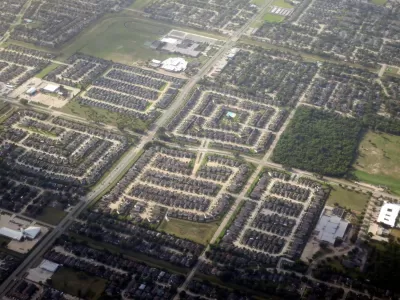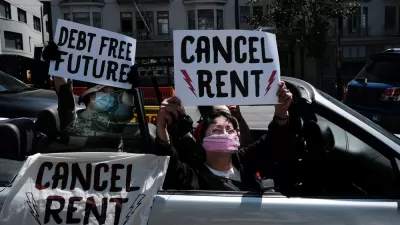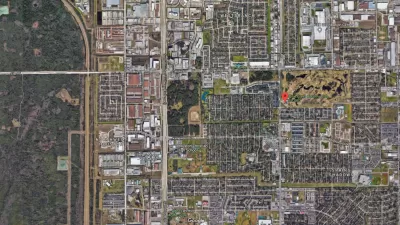The Houston region continues to grow, and local regional governance is struggling to meet residents’ needs.

A new report from Rice University’s Kinder Institute for Urban Research looks at growth in the Houston region and the struggles cities, counties, municipal utility districts (MUDs), and special districts face in providing municipal services to developing areas. “How do we ensure that all areas of those jurisdictions get the services they need and that those jurisdictions have the revenues and powers they need to adequately serve those areas?” asks Kyle Sheldon, one of the report’s authors, in an interview on Houston Matters.
Shelton says MUDs, prevalent in Harris County, are special districts in the state of Texas with property tax collection and other powers that help them build public infrastructure in areas that a city cannot or does not want to reach. However, the system has become complicated and confusing, says Shelton. “There are a lot of growing populations in those areas, and they have expectations for services and may not always understand the county is not the water provider, [that] the county does not do all the same things that the city does.”
One reform proposal is regional revenue sharing, where all jurisdictions in an area pay into a shared pot that is then redistributed. “That would help address some of the disparities we have in some jurisdictions: not being able to adequately maintain water treatment facilities or adequately maintain streets. It helps all of those jurisdictions without overturning existing systems or asking people to drastically change the government structure,” says Shelton. Other options at the county level include giving fast-growing counties sales tax and limited ordinance-making powers.
Shelton stresses that thinking at the regional scale and about regional vitality is important. He notes that Houston chose to grow and to be responsible for providing services to a massive area. He says that MUDs are providing many of those services effectively, and parts of the system are working well. However, the various entities need to be strengthened to prepare for the long-term regional challenges.
FULL STORY: Report: Houston Growth Is Unsustainable Without Government Reforms

Alabama: Trump Terminates Settlements for Black Communities Harmed By Raw Sewage
Trump deemed the landmark civil rights agreement “illegal DEI and environmental justice policy.”

Planetizen Federal Action Tracker
A weekly monitor of how Trump’s orders and actions are impacting planners and planning in America.

The 120 Year Old Tiny Home Villages That Sheltered San Francisco’s Earthquake Refugees
More than a century ago, San Francisco mobilized to house thousands of residents displaced by the 1906 earthquake. Could their strategy offer a model for the present?

BLM To Rescind Public Lands Rule
The change will downgrade conservation, once again putting federal land at risk for mining and other extractive uses.

Indy Neighborhood Group Builds Temporary Multi-Use Path
Community members, aided in part by funding from the city, repurposed a vehicle lane to create a protected bike and pedestrian path for the summer season.

Congestion Pricing Drops Holland Tunnel Delays by 65 Percent
New York City’s contentious tolling program has yielded improved traffic and roughly $100 million in revenue for the MTA.
Urban Design for Planners 1: Software Tools
This six-course series explores essential urban design concepts using open source software and equips planners with the tools they need to participate fully in the urban design process.
Planning for Universal Design
Learn the tools for implementing Universal Design in planning regulations.
Clanton & Associates, Inc.
Jessamine County Fiscal Court
Institute for Housing and Urban Development Studies (IHS)
City of Grandview
Harvard GSD Executive Education
Toledo-Lucas County Plan Commissions
Salt Lake City
NYU Wagner Graduate School of Public Service





























